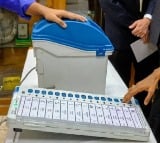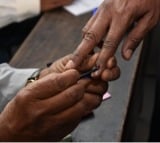Negative interest rate comes into force in Japan
Tokyo, Feb 16: The negative interest rate recently approved by the Bank of Japan (BoJ) for certain bank deposits, came into force on Tuesday, a historic measure intended to boost the growth of the world's third largest economy. It is the first time that the benchmark rate falls into negative territory in Japan, after data on Monday showed a contraction in the gross domestic product (GDP) in the October-December quarter, showing the effects of a global deceleration on the Japanese economy, EFE news reported. The measure, announced on January 29 by the BoJ, applies a negative interest rate of minus 0.1 percent to deposits that Japanese financial institutions place at the BoJ. The decision, which penalises financial institutions for storing excess funds, aims to stimulate investment and credit and is meant to force a reduction of interest rates applied by banks -something which has already begun to translate into rebates for some deposits and mortgage rates. Initially, the measure would affect roughly 10 trillion yen (about $88 billion) in bank funds, about 4 percent of all deposits at the BoJ. Shortly after the announcement, the yield on Japanese 10-year bonds briefly slipped into negative territory for the first time in history, showing the first effects of the BoJ measures on banks which have opted for Japanese debt as a safe haven to mobilise their assets.



















